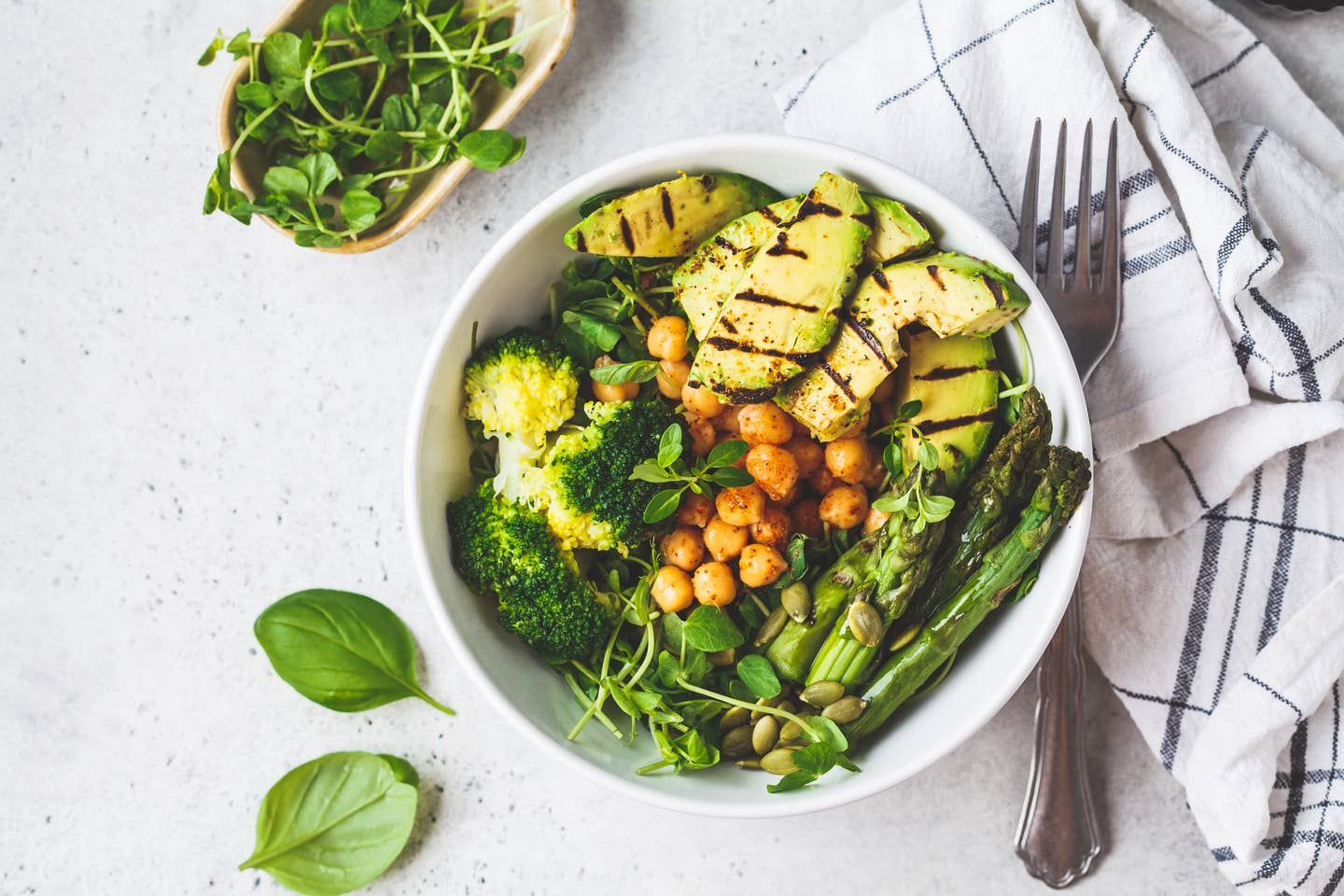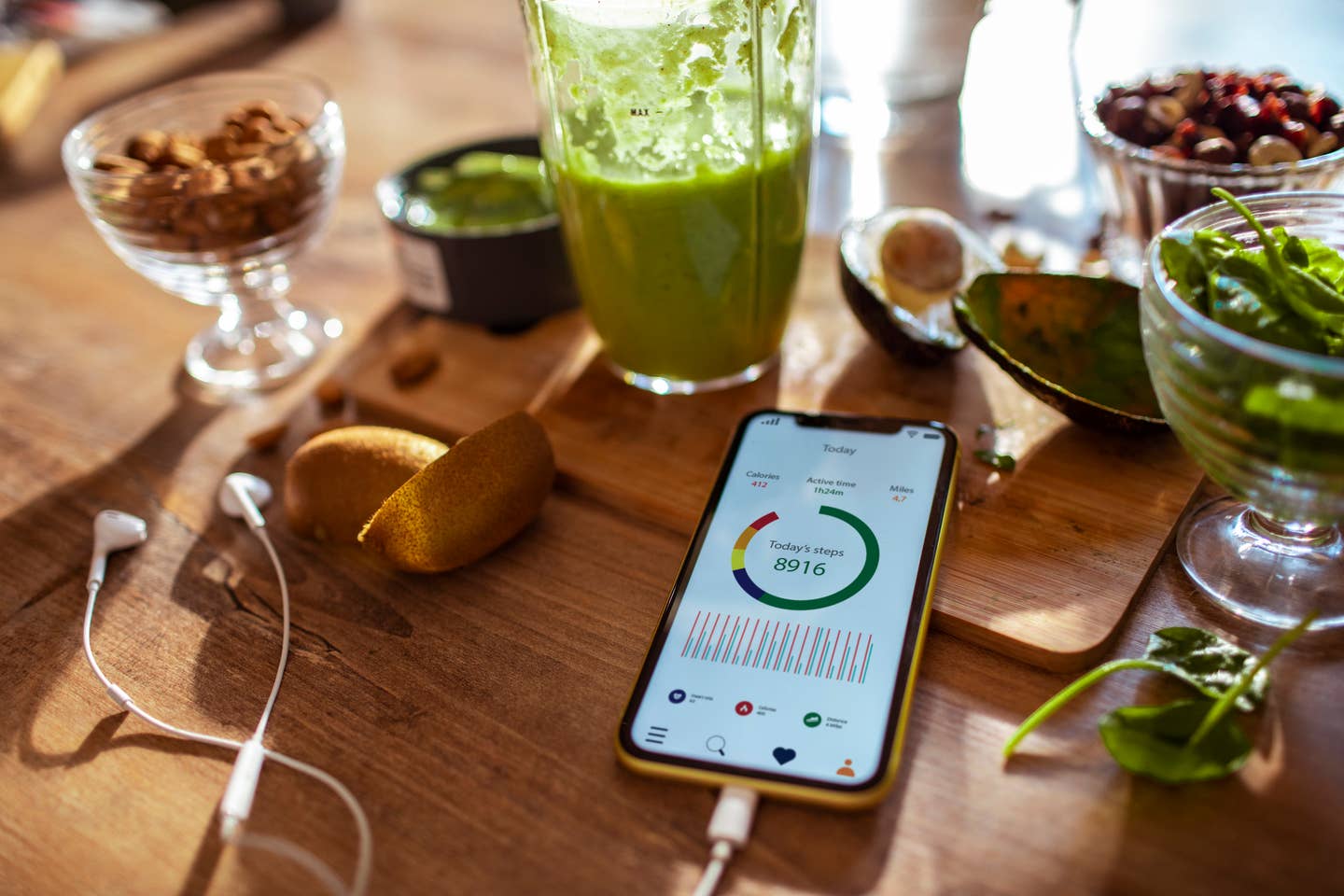
Is It Possible to Go Keto and Be Plant-Based? Experts Say Yes, and It’s Healthier
Today's keto diet has come a long way since its origins in the 1920s as a therapy for people with epilepsy, when doctors used it to deprive the brain's seizure activity of glucose, by keeping carbs in the diet extremely low, and these patients lost weight. What started as a medical treatment has since surged in popularity to become the most searched diet term of 2020. The reason: It works to help dieters rapidly shed unwanted pounds by forcing the body to burn fat for fuel.
The latest version of the keto diet is heavily meat-based, especially relying on processed meats like bacon, which is high in fat and makes it easier for dieters to keep their carbs below 5 percent. Doctors now tell their heart patients that keto is a bad idea, driving up risk for elevated levels of cholesterol and cutting out important nutrients from fruits and vegetables. So the question is: Can you do keto and be plant-based? For people who are keto curious but also want to be heart healthier, and achieve the same weight loss results, but not eat copious amounts of meat, there is a growing trend in keto plant-based options.
Here, experts explain that it is possible to do the keto diet and eat a diet that is completely meat and dairy-free, answering the question: “Is it possible to do keto without eating meat?” with a resounding YES!
People who want to avoid meat for health reasons have stayed away from keto.
Harvard's T. H. Chan School of Public Health recommends staying away from saturated fat and warns that the high-fat content of keto goes against the Dietary Guidelines for Americans and the American Heart Association since saturated fat in meat and dairy raises LDL (so-called "bad") cholesterol and increases the risk of heart disease. Plus there does not appear to any better result after 1 year between those who attempt to lose weight through keto and other more conventional diet plans. Keto reduces the body's reliance on glucose for energy and forces it to mobilize fat stores as ready energy, by putting your body into ketosis.
There is no single keto diet, according to the Harvard School of Public Health review, but the approach generally calls for eating an average of 70 to 80 percent of your total daily calories from fat, 10 to 20 percent from protein, and 5 to 10 percent from carbohydrate, or less than 50 grams of carbs a day (equivalent to about one bagel). This is not only hard to sustain but controversial in the medical community that espouses a heart-healthy diet high in vegetables, fruit, whole grains, legumes, nuts, seeds and healthy fiber, and low in saturated fat.
Is it possible to be keto and plant-based? The answer is yes!
The main way to do it is to substitute animal protein with plant protein, such as tofu and tempeh, and keep your fat sources from plant-based foods, such as avocados, vegetable oil, olive oil, or flaxseed oil, and be prepared to eat plenty of nuts.
“Instead of meat and dairy, you'll be getting healthy fats from plant-based sources such as avocados, coconuts, olives, nuts, and seeds, which also contain protein,” says functional-medicine expert Dr. Will Cole, author of Ketotarian, a predominantly plant-based Keto diet program. “A conventional Keto diet can be really low in vegetables due to the fear of eating too many carbs. However, on a vegan keto diet, you focus on low-starch vegetables like dark leafy greens which give you a more well-rounded nutrient-dense diet in the long run.
Although as a plant-based eater, you may have fewer protein choices than meat-eaters, following a vegan keto diet plan still provides plenty of variety. You can nosh on healthy eats like avocado fries, cauliflower fried rice or zucchini noodles. Or indulge in a handful of roasted macadamia nuts or nut butter guilt-free. The key is to fill up on plenty of fats and proteins while minimizing your carb intake to a maximum of 50 grams a day.
“My book Ketotarian is all about how to do the keto diet completely plant-based, whether you are pescatarian, vegetarian or vegan,” says Cole. “While you don't have the option of eggs, ghee or wild-caught fish, which I allow for vegetarians and pescatarians, the basics of what you are eating will provide you with the essential nutrients your body needs to thrive.”
Doing Keto and Combining It With Plant-Based Approach Appeals to Healthy Eaters
Devotees of the keto approach–including Halle Berry, Vanessa Hudgens, and Kourtney Kardashian–credit the extreme diet for promoting clearer skin, boosting energy, and, of course, helping to shed extra pounds. “The keto lifestyle offers so many benefits such as weight loss, appetite control, more energy, and better mental performance,” Berry posted on her Instagram page. “If you’re like me, you can possibly reverse type 2 diabetes. You’ll experience better physical endurance, better skin, and also less acne if that’s an issue. And it even helps control migraines! So today I encourage you to say yes to Keto. Give it a try... What do you have to lose?!”
But, despite the numerous celebrity endorsements, not everyone is on board with the recent keto craze, if it's also high in meat and dairy fat. Whitney English, a registered dietician and nutritionist in Los Angeles, warns there could be plenty of drawbacks to cutting carbs out of your diet. Ultimately, it could actually do more harm than good, especially if you are a vegan or vegetarian.
“It can be hard to meet nutrient needs when your choices are so limited,” says English. “There is no research on vegan ketogenic diets. What we do know is the more restrictive a diet, the harder it is for people to stick to it. Why cut out nutritious, health-promoting foods if you don't have to?”
Nonetheless, many experts (Cole included) still insist that the keto diet is a beneficial way for anyone to experience long-term health benefits. These could include – but aren't limited to – stabilized blood sugar, less inflammation, and better cardiovascular health.
“Weight loss is typically the first aspect that draws a person to try a keto diet,” says Cole. “While that is certainly a benefit, the health benefits go far beyond that Specifically, a keto diet helps to stabilize out-of-control blood sugar, lower inflammation through moderating pro-inflammatory pathways and help enhance cognitive function as ketones are able to pass through the blood-brain barrier as a more effective form of fuel to your brain than glucose.”
Although there is still limited scientific evidence to support these claims, research does show that following a keto diet could have benefits for overweight individuals. According to a 2014 study conducted at the University of Padova in Italy, participants who suffered from obesity saw improved appetite control and weight loss when they adopted a high fat, low-carb lifestyle. However, researchers concluded that the keto diet should only be followed for a maximum of 6 to 12 months.
That said, even Cole admits that extreme eating, such as increasing your protein and fat intake, as prescribed on the keto diet, can pose some serious health risks. “A traditional ketogenic diet doesn't always take into account the sensitivities that some people have to dairy and processed conventional meats,” he says. “These can perpetuate inflammation and the health problems they are looking to avoid with being in a ketogenic state. That is why I advocate for eating a plant-based ketogenic diet to avoid this and other potential pitfalls of conventional Keto diets.”
In other words, you are what you eat. So always try to eat a well-balanced diet full of antioxidant-rich vegetables and fruits, even combining those with a keto diet. Regardless of whether you decide to follow a traditional plant-based diet or give the plant-based keto a try, remember the healthiest way to lose weight is gradually, since you're more likely to keep it off.
More From The Beet






